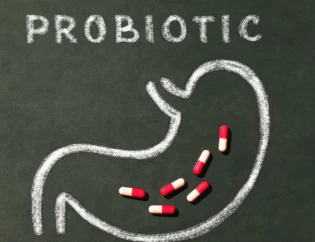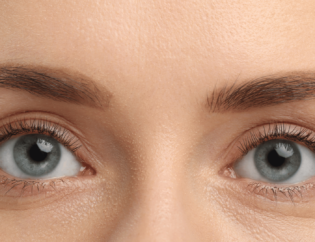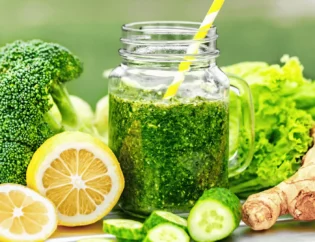
Have you ever experienced an uncontrollable, repetitive twitch in your eye? This annoying sensation is a common phenomenon, but many people are left wondering why eye twitch happens and how to stop it. While most eye twitches are harmless, they can become irritating if they persist. Understanding the causes behind eye twitches and how to prevent them through nutrition and lifestyle changes is essential for maintaining overall eye health.
In this blog, we’ll explore the reasons why eye twitch occurs, provide tips to stop it, and highlight how proper nutrition and supplements like Nutrinova’s Sight-Saver can protect your vision.
Why Eye Twitch Happens: Common Causes
Before we dive into nutrition and solutions, it’s important to understand why eye twitch happens in the first place. Eye twitching, also known as myokymia, refers to the involuntary spasm of the eyelid muscles. Here are the most common causes:
- Stress: Stress is a significant factor that can lead to eye twitches. When you’re under pressure or feeling anxious, your body’s response may include muscle contractions, including those in the eyelids.
- Fatigue: Lack of sleep is another major reason why eye twitch occurs. When you don’t get enough rest, your eyes can become strained, causing the muscles around the eyes to twitch involuntarily.
- Caffeine and Alcohol: Overconsumption of caffeine and alcohol can overstimulate the nervous system, leading to muscle spasms and why eye twitch becomes more frequent.
- Eye Strain: With the growing use of digital devices like smartphones, tablets, and computers, eye strain has become more common. Constant staring at screens can lead to tired eyes and is one reason why eye twitch happens.
- Nutritional Deficiencies: A lack of essential nutrients such as magnesium and potassium can affect the muscle function around the eyes, leading to twitching. Ensuring a balanced diet is key to reducing these episodes.
- Dry Eyes: When your eyes don’t produce enough moisture, they can become irritated and lead to twitching. Dry eyes are more common among people who wear contact lenses or spend long hours in front of screens.
How to Stop Eye Twitching
Now that we understand why eye twitch happens, let’s explore how to stop it. While eye twitches are often temporary and go away on their own, persistent twitching may require some lifestyle adjustments. Here are practical solutions to reduce and prevent eye twitching:
- Manage Stress: Since stress is one of the leading causes of why eye twitch happens, finding ways to manage stress is critical. Relaxation techniques like meditation, deep breathing, and yoga can help calm the nervous system and reduce muscle twitches.
- Get Plenty of Sleep: Prioritize getting enough rest each night. Aim for at least 7-8 hours of sleep to ensure your body, including your eyes, is well-rested. A regular sleep routine can significantly reduce the chances of why eye twitch happens.
- Limit Caffeine and Alcohol: Reduce your intake of caffeine and alcohol to lower the chances of overstimulating your muscles. Cutting back on these stimulants can be an effective way to prevent eye twitches from occurring.
- Take Breaks from Screens: Eye strain from digital screens is a common trigger for why eye twitch occurs. To minimize eye strain, practice the 20-20-20 rule: every 20 minutes, look at something 20 feet away for at least 20 seconds. This helps relax your eye muscles.
- Use Eye Drops: If dry eyes are causing your twitching, over-the-counter eye drops can help lubricate your eyes and provide relief. Keeping your eyes hydrated can prevent the irritation that leads to twitching.
Nutrition for Healthy Eyes
Proper nutrition plays a significant role in protecting your eye health and preventing conditions like eye twitching. Nutritional deficiencies, especially in certain vitamins and minerals, can contribute to why eye twitch happens. Here’s a closer look at the nutrients that are essential for maintaining healthy eyes:
- Vitamin A: Vitamin A is crucial for maintaining the surface of the eye and preventing dry eyes. It also supports vision in low-light conditions and reduces the risk of eye infections.
- Vitamin C: This powerful antioxidant helps protect your eyes from oxidative stress, which can lead to conditions like cataracts and macular degeneration. It also supports the health of blood vessels in the eyes.
- Vitamin E: Like Vitamin C, Vitamin E is an antioxidant that protects your eyes from damage caused by free radicals. It also plays a role in maintaining healthy vision and reducing the risk of age-related eye conditions.
- Omega-3 Fatty Acids: Omega-3 fatty acids are essential for preventing dry eyes and reducing inflammation. They help maintain a healthy tear film, which keeps your eyes lubricated.
- Magnesium: Magnesium deficiency is one reason why eye twitch occurs. Magnesium plays a key role in muscle function, and a deficiency can lead to involuntary muscle contractions, including eye twitches.
Foods That Are Good for Eye Health
Eating a balanced diet that includes nutrient-rich foods can support your eye health and reduce the risk of why eye twitch happens. Incorporate these foods into your meals to keep your eyes healthy:
- Carrots: Rich in beta-carotene (a form of Vitamin A), carrots are well-known for their eye health benefits. Beta-carotene is converted into Vitamin A, which supports vision and reduces the risk of eye disorders.
- Leafy Greens: Spinach, kale, and Swiss chard are packed with lutein and zeaxanthin, antioxidants that protect the eyes from harmful light and reduce the risk of cataracts and age-related macular degeneration.
- Citrus Fruits: Oranges, lemons, and grapefruits are excellent sources of Vitamin C, which helps maintain the health of blood vessels in the eyes and reduces the risk of developing cataracts.
- Fish: Fatty fish like salmon, tuna, and sardines are rich in omega-3 fatty acids, which help prevent dry eyes and reduce inflammation. Regular consumption of these fish can improve overall eye health.
- Eggs: Eggs are a great source of lutein and zeaxanthin, along with Vitamin A, which helps protect the eyes from harmful UV rays and reduces the risk of macular degeneration.
Supplements for Eye Health
In addition to eating a nutrient-rich diet, eye health supplements can provide additional support, especially if you’re prone to eye twitching or other vision issues. Nutrinova’s Sight-Saver supplement is an excellent choice for those looking to boost their eye health.
Sight-Saver is specifically formulated with key nutrients like Lutein, Zeaxanthin, and Vitamins C and E to protect the eyes from oxidative damage, support the health of the retina, and improve overall vision. For those wondering why eye twitch happens due to nutritional deficiencies, Sight-Saver can help replenish essential nutrients and promote better eye function.
Taking a high-quality supplement like Sight-Saver can be a proactive step in protecting your eyes from common issues such as dry eyes, twitching, and age-related degeneration.
Conclusion
Now that we’ve explored the causes of why eye twitch happens and how to stop it, it’s clear that managing stress, getting enough rest, and maintaining a nutrient-rich diet are essential steps in preventing eye twitching. Incorporating foods like carrots, leafy greens, and fish, along with supplements like Nutrinova’s Sight-Saver, can support your eye health and reduce the risk of persistent twitching.
Prioritizing your eye care routine, taking breaks from digital screens, and ensuring proper hydration are simple yet effective ways to maintain your vision and keep your eyes in top condition.











